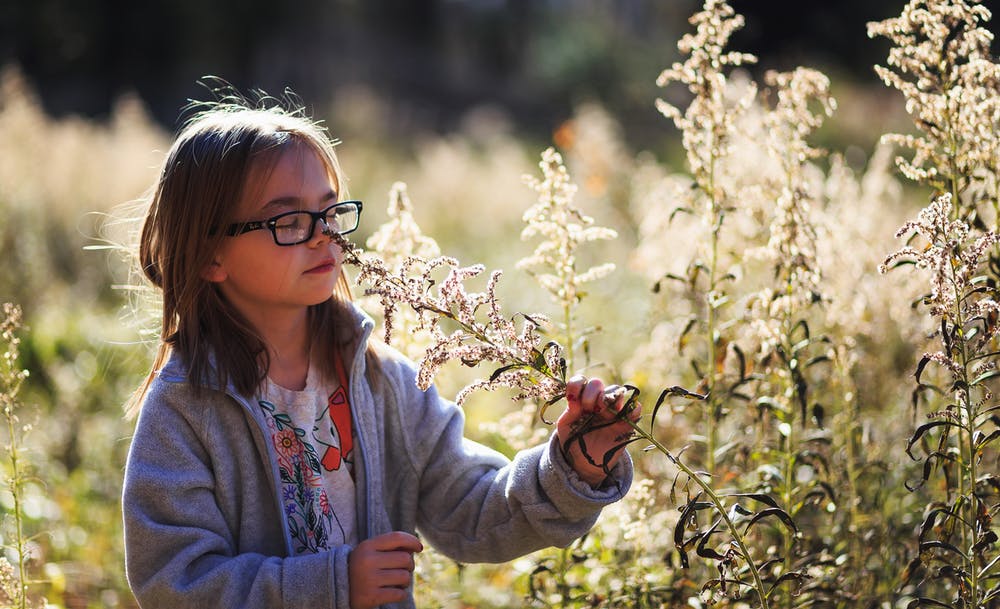Today I will be focusing on heightened sensitivity to smell and its possible impact on everyday life for autistic people. We have already looked at three senses affected by sensory processing disorder: sight, hearing and taste. A person with SPD perceives stimuli in a different way to others. This can result in either seeking or avoiding behaviours.
Every day, we are bombarded with a variety of different scents. Many are pleasant; others not so much. For an autistic person, this can cause a great deal of discomfort. An unpleasant or strong smell may trigger meltdown behaviour.
Sense of Smell: Overview
The sense of smell is closely linked to the sense of taste. We have special cells, located high in our noses that detect scents. These cells link to the brain. When an olfactory sensory neuron detects a smell, it sends a message to the brain. The brain interprets the data at receives and recognises it as a particular smell. Scents can also affect our emotions and stimulate memories.
Our sense of smell has two very different purposes. One is related to enjoyment; the scent of flowers, perfume, or delicious food cooking. Our sense of smell also functions as a powerful warning system. For example, we might detect a fire from the smell of burning. Likewise we would not eat a food if it smelled bad, as this would indicate spoilage.

Sensory Avoiding Behaviours: Olfactory
For some autistic children, certain scents are unbearable. My son hates strong food smells like vinegar and cheese. He was bullied by children at school who would deliberately put these foods near him to get an extreme reaction. Children who dislike strong odours may be picky eaters and refuse many foods because of their sensitivity to smell.
Smells in the environment can also be a big problem. My son will loudly protest if we visit a house or building that he considers “smelly.” This can be embarrassing when visiting someone’s home! It can be good to put ourselves in the child’s position. It is unpleasant for us if we are in a room that smells bad. Imagine how much worse it must be for a child with autism. They may often respond by trying to get away from the source of the smell. They may get very agitated and upset.
Olfactory Sensory Seeking Behaviours
On the other end of the spectrum, there are children who love strong smells and seek them out. They may even be attracted to particularly unpleasant odours like feces. This could result in dangerous behaviours, as such children may seek out substances like gasoline, which are harmful to inhale.
On a positive note, parents may be able to use fragrances in a useful way. If a child is agitated, a pleasant or familiar scent may be very calming and relaxing to them.
Helping Children with Sensitivity to Smell
Whether the child has seeking or avoidant behaviours, there are ways to help. It’s good to be aware of how a child may react in a different environment and make plans accordingly.
Some parents have had success introducing new scents to their child in small increments. This could help desensitise them to a certain smell.
Others have used scents as therapy. There are scented putties available which can be used as stress relief toys. Pleasant scents can distract a child from a bad smell. For example, if a family are visiting a zoo, they may anticipate some bad smells! Therefore, they could take along a small cotton wool ball or tissue with a few drops of essential oil. The child can use the pleasant fragrance as a distraction to cover any unpleasant smells. Certain oils like lavender are very relaxing.
It can also be good to make an “escape plan” and think of ways that you can physically remove a child from a situation if they are becoming emotional.
As individuals we should be considerate of those around us. It is not kind of us to wear very strong fragrances. This could actually be overwhelming to others and cause discomfort.
As with other sensory processing issues, it is best to consult a professional for advice about the best methods for helping your child. An occupational therapist may advise on a “sensory diet,” which is a series of exercises to help children with SPD.